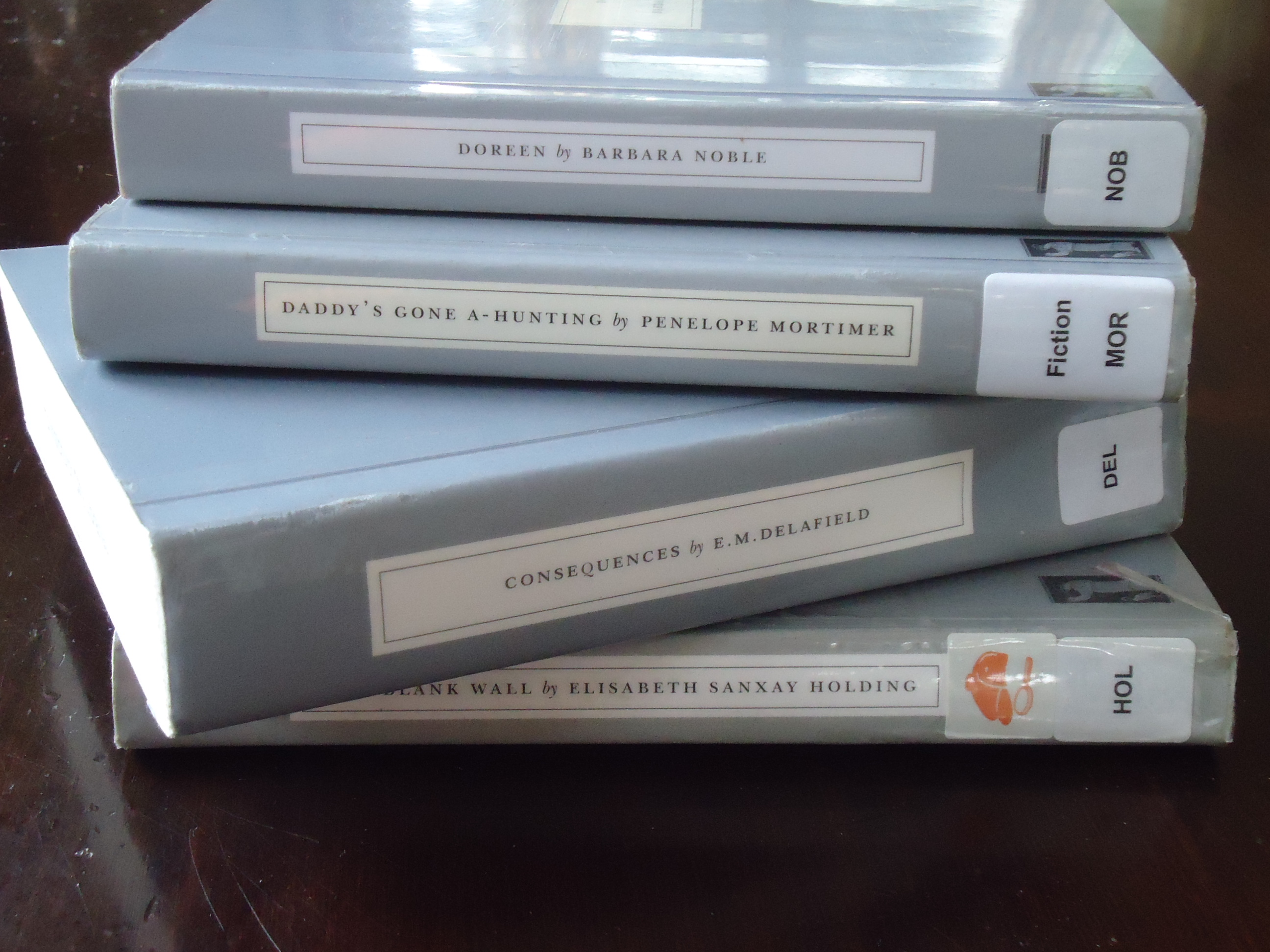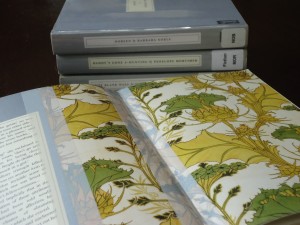
You may not have come across these elegant, unassuming ladies in our library shelves, well groomed in dove-grey covers and creamy-white spine labels. Don’t be misled by their quiet twinset and pearls demeanour. Take a chance and have a browse! You might be seduced by their petticoats, their gorgeous end papers.
Who are Persephone Books and what have they to say for themselves? Let me have the pleasure of introducing you.
The name is a clue. In Greek mythology Persephone, daughter of Zeus and Demeter, being rather beautiful, is stolen away by her Uncle Hades to become his wife and queen of the underworld. She emerges only in spring, thus becoming goddess of Spring and Vegetation.
Persephone publishers chose this imagery for their mission of rescuing twentieth century works published over 60 years ago, largely by women, which have been neglected and in danger of falling into obscurity. Intelligent, thought provoking and beautifully written fiction and non-fiction, focusing on women’s lives in the difficult and changing world of the first half of the last century. They talk about relationships, sexual politics, domesticity, war, separation, austerity, single women, work, social comedy. They are often subversive but in a quiet way; feminist before Women’s Lib kicked in.
Colleen Mondor writing for Bookslut blog says
These are books written about people and places and a way of life that no one seems to write about nearly as well anymore. The kicker, of course, is that they are all just flat out great to read.
The collection currently stands at 110 titles. Christchurch City Libraries have 11 of them. Personally I’d push for more. A further mention of their petticoats! For the lovely endpapers Persephone have cleverly chosen prints of fabrics current in the era of the books’ original publication and which complement the emotional tone of the books. For me these greatly add to the retro appeal and sensual pleasure of these publications.
Meet just a few of the ladies at your library.
Mollie Panter-Downes wrote a weekly London Newsletter for The New Yorker during WW11 and twenty-one of these appear as stories in Good Evening, Mrs. Craven Lightly handled and sometimes poignantly comic.
In her mother’s day a pregnant woman spent a good deal of time on a sofa, thinking beautiful thoughts and resolutely avoiding unpleasant ones; people took care not to speak of anything shocking or violent in front of her. Nowadays shocking things turned up on the doorstep with the morning paper; violence was likely to crash out of a summer sky on a woman who could move only slowly and who was not as spry as usual at throwing herself on her face in the gutter.
The stories portray the lives of Londoners, mostly women without men, who have normal, day to day human concerns while coping with the deep anxieties of living through the continual bombing, with gas masks, blackouts, lack of sleep, food shortages, the evacuation of their children, fear for their menfolk overseas. The “stiff upper lip” was their way of handling such a ghastly time. Did you know that the death toll for British civilians in WWII reached 62,000?
In Daddy's Gone A-hunting (1958) predating Revolutionary Road by three years, Penelope Mortimer (more famous for The Pumpkin Eater) writes honestly about the depression experienced by many housewives in the fifties.
Ruth is a housewife trapped in a commuter suburb, and heading quietly for a nervous breakdown while her husband, sons at boarding school, and daughter at university live their lives elsewhere. The women around her are...
Like little icebergs, each [wife] keeps a bright and shining face above water; below the surface, submerged in fathoms of leisure, each keeps her own isolated personality. Some are happy, some poisoned with boredom; some drink too much and some, below the demarcation line, are slightly crazy; some love their husbands and some are dying from lack of love; a few have talent, as useless to them as a paralysed limb.”
Dorothy Whipple in “They were Sisters” They Were Sisters(1943) explores the very different marriages of three sisters (shades of Chekhov) Lucy, Charlotte and Vera. On the surface a gentle read but lurking underneath is the shadow of domestic violence.
Others titles are much more light hearted and fun. I especially enjoyed romping through Miss Pettigrew Lives for A Day by Winifred Watson (1938). Miss Pettigrew, a staid middle aged, recently laid off governess, is mistakenly sent to work for night club singer, Delysia Lafosse, glamorous, ditzy but generous hearted, and in the course of 24 hours finds her life transformed. A truly "ripping" read full of comedy, poignancy and loose living 1930s-style.
In Cheerful Weather for the Wedding (1932) Julia Strachey writes about truly awful things that can happen in the last hours leading up to a wedding. The bride-to-be fearing she has made a dreadful mistake, drinking a lot of rum, her ex boyfriend arriving, her mother constantly praising the weather, peculiar relations abounding and who knows what’s going to happen next!
Both of these have recently been made into films, which shows the extent of their contemporary appeal.
I'm hoping, Dear Reader, that something here piques your curiosity and you have a real good winter read.



Add a comment to: Heard of Persephone Books?